New Jersey Adopts New Sex-Ed Standards That Promote Abortion and Push Sex on Kids
NorthJersey.com reports the board voted 8-4 in favor of the standards last week. The plan for sex education outlines what should be taught at each grade level from kindergarten through 12th grade.
According to the NJ Spotlight, parents repeatedly have spoken out against the changes and held several protests during board hearings.
Several board members also criticized the changes, including Andrew Mulvihill. One of his problems is that the new standards present abortion as a legitimate pregnancy option.
“I don’t think teachers should be telling kids that one of the things you can do if you get pregnant is to have an abortion,” Mulvihill said during a May 3 board meeting. “There are a lot of people who fundamentally believe that is not something that should be taught.”
According to the new plan, by the end of eighth grade, students should be taught about “pregnancy testing, the signs of pregnancy, and pregnancy options, including parenting, abortion, and adoption.”
For high school students, the standards are similar, but the plan adds that students also should be provided with “medically accurate sources of information and local services that provide … pregnancy options (including parenting, abortion, safe haven, adoption, and prenatal care).”
It is not difficult to guess what one of those sources may be. Planned Parenthood, the billion-dollar abortion chain, quickly praised the board’s adoption of the new standards, claiming they were modeled on the “gold standard of sex education.”
SIGN THE PETITION: Stop Infanticide! Stop Abortions Up to Birth!
Many New Jersey parents disagree. Board member Mary Elizabeth Gazi said she has heard from many concerned parents about the sex education changes, according to NJ Spotlight.
“This is personal and I may not be popular for saying it, but I have gotten the message loud and clear from a lot of parents,” Gazi said. “When a student is taught something in school that undermines the core values that a parent is trying to instill, to me that’s a problem. That’s a big problem.”
But State Education Commissioner Lamont Repollet said parents can opt out their children from certain sex education classes, NorthJersey reports. Repollet said local school boards also can choose what curriculum to use.
The state Board of Education wants school districts to implement the new standards by the fall of 2022.
Shawn Hyland, of the Family Policy Alliance of New Jersey, called the board’s decision a “gross failure of responsibility.” He said children are “continually being oversexualized,” and parents are rightfully upset.
“The decision of the NJDOE to adopt age-inappropriate extreme sexual content is a gross failure of responsibility,” Hyland told the local news. “Tragically, schools have become obsessed with graphic sexual lessons and reading assignments that promote unhealthy and risky behaviors.”
His organization is raising awareness that, under state law, parents have the right to opt out their children from any part of health classes.
Monica Cline, a former sex education instructor with Planned Parenthood, told Breitbart that the abortion chain is “cleverly high jacking the injustices of other populations to silence opposition to their sexualized agenda for our youth.”
“As Planned Parenthood, and its children, SIECUS, Answer & Advocates for Youth, slowly oppress our youth with vulgar deceit, they also target parents, families, and people of faith in the hope of alienating and minimizing their role in their children’s lives,” she said. “Parents and leaders must stop the hyper sexualization movement that aims to federally mandate their dangerous standards that objectify and place our children at risk of sexual coercion and life altering health risks.”
Planned Parenthood is the largest abortion group in the United States, aborting more than 340,000 unborn babies every year. The abortion chain also teaches sex education in public schools across the country, and promotes risky sexual behavior to vulnerable young teens at its clinics.
In 2014, Live Action release an undercover video series showing Planned Parenthood employees encouraging young teens to participate in sado-masochistic sexual activities, including gagging, whipping, asphyxiation, shopping at sex stores and viewing pornography.
LifeNews also reported Planned Parenthood’s booklet for HIV-positive youth, “Healthy, Happy and Hot,” tells young people that it is their “human right” to not tell their partner that they have HIV.
The abortion giant also publishes multiple “resources” for children and teenagers concerning sexual activity. These materials claim to provide “age appropriate” sex education to children starting at age 4.



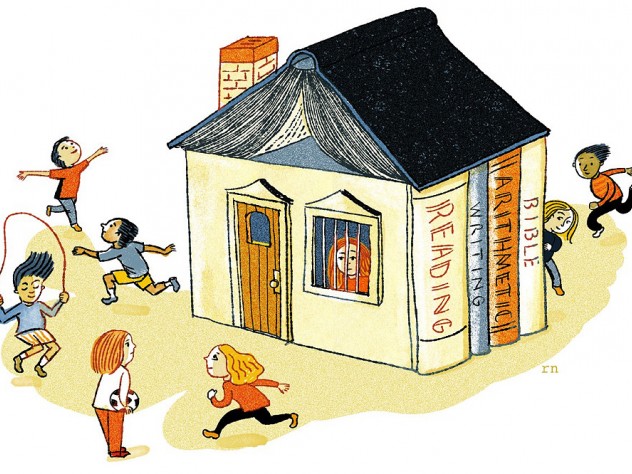
 children to school at age four or five is that teachers are “mandated reporters,” required to alert authorities to evidence of child abuse or neglect. “Teachers and other school personnel constitute the largest percentage of people who report to Child Protective Services,” she explains, whereas not one of the 50 states requires that homeschooling parents be checked for prior reports of child abuse. Even those convicted of child abuse, she adds, could “still just decide, ‘I’m going to take my kids out of school and keep them at home.’”
children to school at age four or five is that teachers are “mandated reporters,” required to alert authorities to evidence of child abuse or neglect. “Teachers and other school personnel constitute the largest percentage of people who report to Child Protective Services,” she explains, whereas not one of the 50 states requires that homeschooling parents be checked for prior reports of child abuse. Even those convicted of child abuse, she adds, could “still just decide, ‘I’m going to take my kids out of school and keep them at home.’”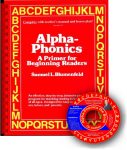 doubt there are some parents who are motivated and capable of giving an education that’s of a higher quality and as broad in scope as what’s happening in the public school,” she says. But Bartholet believes that if parents want permission to opt out of schools, the burden of proving that their case is justified should fall on parents.
doubt there are some parents who are motivated and capable of giving an education that’s of a higher quality and as broad in scope as what’s happening in the public school,” she says. But Bartholet believes that if parents want permission to opt out of schools, the burden of proving that their case is justified should fall on parents.
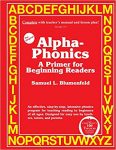 steepest price for this particular error. After six years of digging this hole, the most fervent Common Core advocates seem to believe that we should continue to dig deeper. Instead, we must ensure that reason prevails and a different approach is considered.”
steepest price for this particular error. After six years of digging this hole, the most fervent Common Core advocates seem to believe that we should continue to dig deeper. Instead, we must ensure that reason prevails and a different approach is considered.”



 “We know that in April, school districts nationally furloughed or laid off nearly half a million workers,” says Leachman at the Center on Budget and Policy Priorities. “That is an astonishing number. It’s many more than lost their jobs through the entirety of the Great Recession. It’s all happened in one month.”
“We know that in April, school districts nationally furloughed or laid off nearly half a million workers,” says Leachman at the Center on Budget and Policy Priorities. “That is an astonishing number. It’s many more than lost their jobs through the entirety of the Great Recession. It’s all happened in one month.” Congregations were enthusiastic about online church services when the pandemic hit – but a respected “faith and culture” polling group reports the novelty seems to have worn off.
Congregations were enthusiastic about online church services when the pandemic hit – but a respected “faith and culture” polling group reports the novelty seems to have worn off.
 With most public schools ending the school year in lockdown because of the coronavirus pandemic,
With most public schools ending the school year in lockdown because of the coronavirus pandemic, 


 The same effect occurred in reading scores. The commonwealth’s fourth grade reading scores grew by roughly half a point annually pre-Common Core, but declined by almost one quarter of a point annually post-Common Core. For eighth graders, reading scores were growing by .4 percent annually before CCSS. However, they have been declining by roughly .6 percent after CCSS implementation.
The same effect occurred in reading scores. The commonwealth’s fourth grade reading scores grew by roughly half a point annually pre-Common Core, but declined by almost one quarter of a point annually post-Common Core. For eighth graders, reading scores were growing by .4 percent annually before CCSS. However, they have been declining by roughly .6 percent after CCSS implementation.





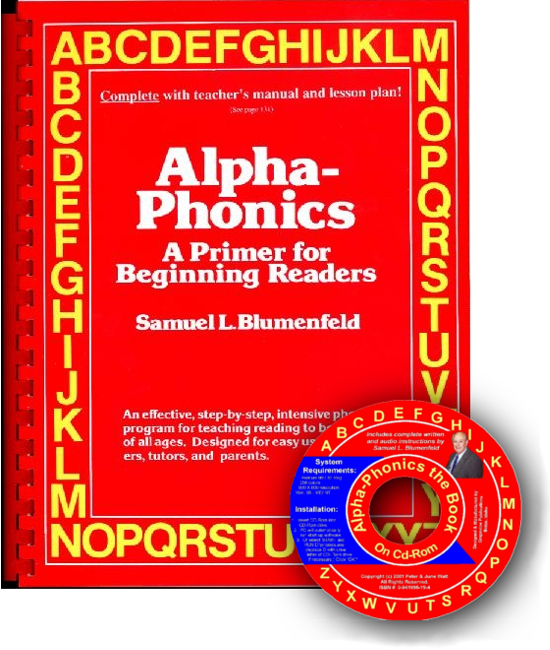 Alpha-Phonics
Alpha-Phonics The Alphabet Song!
The Alphabet Song! Water on the Floor
Water on the Floor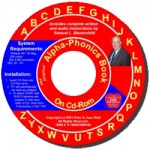 Alpha-Phonics the Book on CD Rom
Alpha-Phonics the Book on CD Rom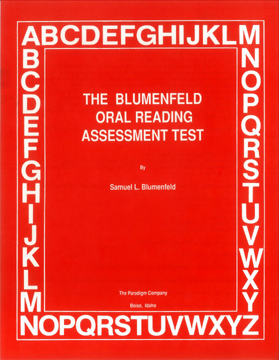 Blumenfeld Oral Reading Assessment Test
Blumenfeld Oral Reading Assessment Test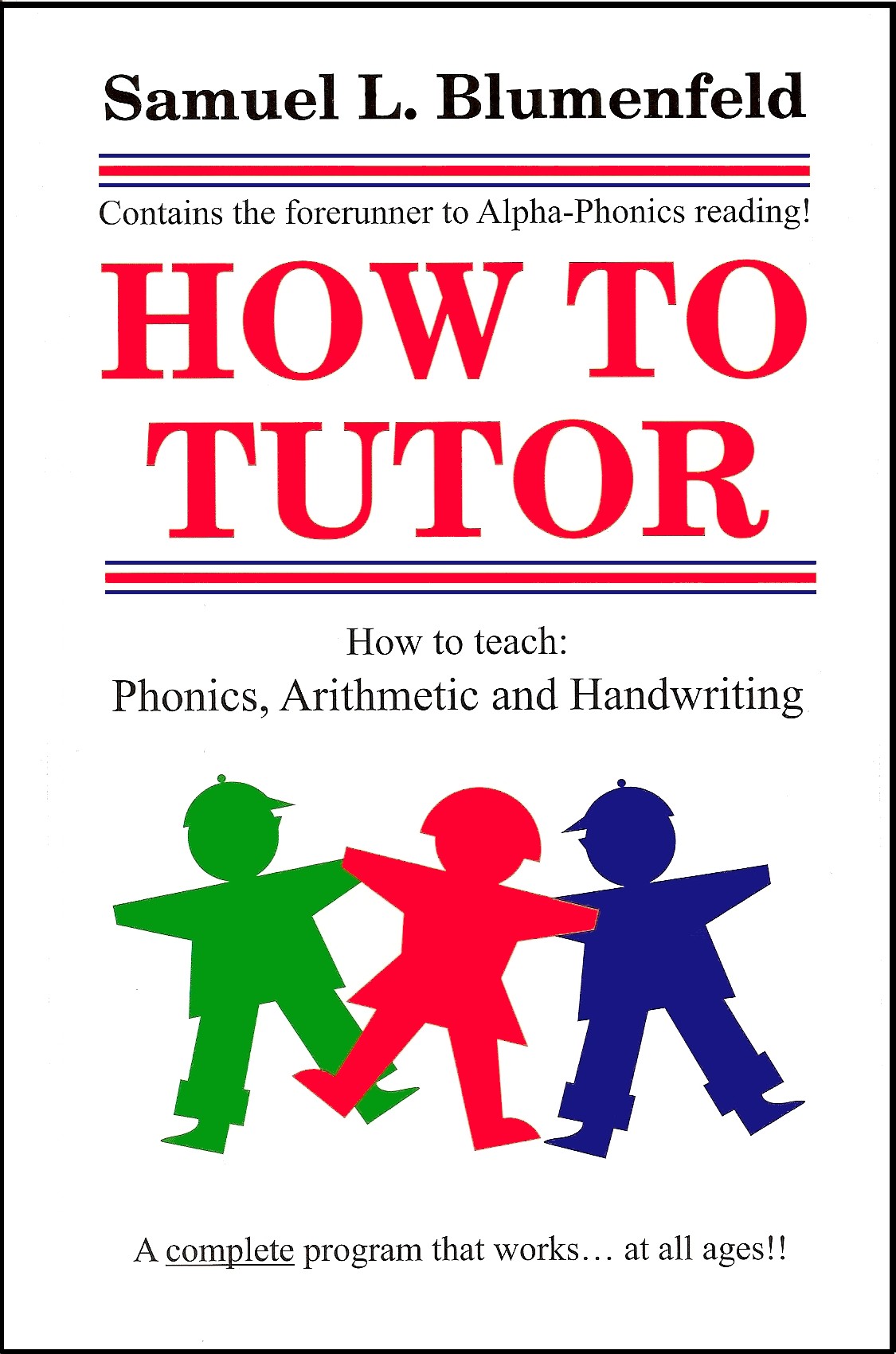 How To Tutor
How To Tutor How To Tutor Cursive Handwriting Workbook
How To Tutor Cursive Handwriting Workbook
Since Homeschooling is the norm for the time being, we hope Parents whose children are in the midst of learning to read, will investigate how Alpha-Phonics can easily be used to teach their children to read at any stage of their reading instruction. Your Kids can make a lot of headway in only a couple of weeks with this proven program. Follow the links below to know all about the time-tested (37 + years) Alpha-Phonics program:
WEBSITE TESTIMONIALS CATHY DUFFY REVIEW
OTHER REVIEWS AWARDS HOW TO ORDER